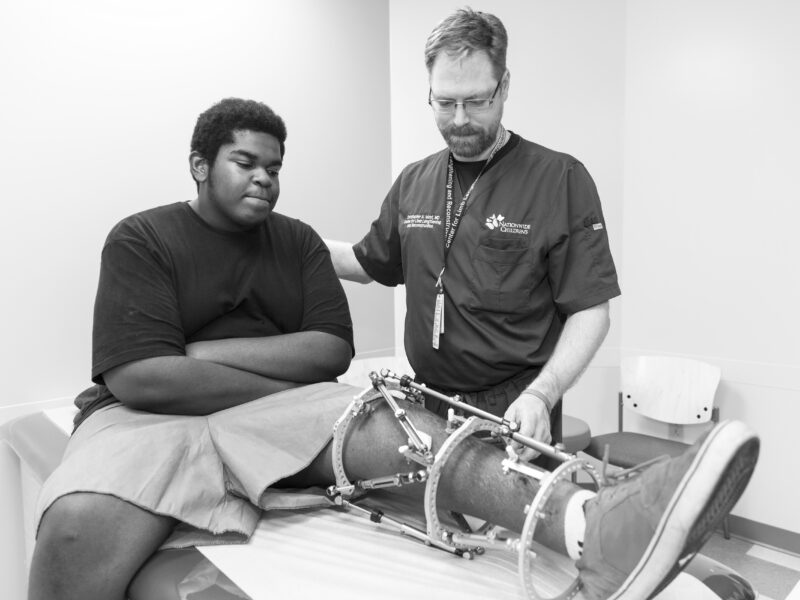NASPGHAN: New Guidance for Surgical Procedure Selection in Pediatric Chronic Pancreatitis
NASPGHAN: New Guidance for Surgical Procedure Selection in Pediatric Chronic Pancreatitis https://pediatricsnationwide.org/wp-content/uploads/2022/04/AdobeStock_271260228-web-crop.jpg 899 450 Katie Brind'Amour, PhD, MS, CHES Katie Brind'Amour, PhD, MS, CHES https://pediatricsnationwide.org/wp-content/uploads/2021/03/Katie-B-portrait.gif- May 02, 2022
- Katie Brind'Amour, PhD, MS, CHES

Informed, multispecialty decision-making is essential to give children with chronic pancreatitis the best chance for long-term pain relief and improved quality of life, according to new guidance issued by the North American Society for Pediatric Gastroenterology, Hepatology & Nutrition.
Chronic pancreatitis has long been an underappreciated and underrecognized condition in children. Now, a NASPGHAN Pancreas Committee position paper provides a review of the pediatric chronic pancreatitis surgical management literature, which has been used to develop improved guidance for pediatric pancreas care teams to consider in their decision-making for this uncommon but debilitating condition.
“There are significant knowledge gaps among clinicians around chronic and acute recurrent pancreatitis in children, which often makes it difficult for kids to receive coordinated, multidisciplinary evaluation of their disease process,” says Jaimie Nathan, MD, FACS, chief of Pediatric Abdominal Transplant and Hepatopancreatobiliary Surgery at Nationwide Children’s Hospital and lead author of the publication.
Many pediatric gastroenterologists receive little, if any, in-depth pancreatitis-specific training during their fellowships, and pediatric surgeons often rely on their knowledge of management in adults to guide their use of pancreas operations in children.
“This makes it a challenge to advance the field, since there is little available research or even awareness,” Dr. Nathan says.
To help address this, he and a subgroup of the NASPGHAN Pancreas Committee examined the literature discussing risk factors, treatment outcomes and the range of surgical options for children suffering from debilitating chronic pancreatitis. Following medication and endoscopic intervention, conventional operations such as drainage procedures, partial resections and combinations thereof form the historical range of treatment options for children. While these may still be the best option for children with significant, uniform pancreatic duct dilation or an inflammatory head mass, there are important considerations for optimizing outcomes.
“Surgical intervention is not one-size-fits-all,” says Dr. Nathan, who is the country’s only board-certified pediatric surgeon with significant experience performing the latest addition to the pediatric pancreatitis surgical armament: total pancreatectomy with islet autotransplantation (TPIAT). “We created an algorithm to guide decision-making for patients with debilitating chronic pancreatitis. The decision should always involve discussion among a multidisciplinary team and must consider the anatomy and morphology of the pancreas and a child’s potential genetic risk factors to identify the best approach.”
The algorithm guides providers through key questions that help categorize the nature of a patient’s disease and lists the most reasonable surgical approaches based on the answers. Importantly, understanding of the genetic underpinnings of disease for an individual may help predict their long-term response to conventional operations. Even in the setting of appropriate anatomy and morphology for a conventional operation, the presence of underlying genetic risk factors may make TPIAT the optimal initial surgical option.
“Kids with genetic risk factors have a high likelihood of failing conventional operations, so we have to rethink whether the best approach for them is just going straight to TPIAT,” says Dr. Nathan, who collaborates closely with Balamurugan Appakalai, PhD, the director of the Pancreatic Islet Cell Isolation Program and a principal investigator in the Center for Clinical and Translational Research in the Abigail Wexner Research Institute at Nationwide Children’s. Dr. Appakalai is a pioneer in islet isolation and is working to improve islet yield and engraftment to help increase the opportunity for insulin independence after TPIAT.
“TPIAT as the initial operation may lead to the best outcome for children with genetic risk factors for pancreatitis and certain other characteristics,” says Dr. Nathan. “Sure, you can do it as salvage after failure of other conventional operations, but the problem is that islet yield is compromised by disease progression, age and each preceding surgical intervention. So if you start with a compromised islet pool, by the time you proceed to TPIAT you have less of a chance of achieving insulin independence.”
Dr. Nathan and his colleagues on the committee hope that the new guidance, coupled with greater awareness of chronic pancreatitis in children, should help teams of pediatric gastroenterologists, surgeons, endocrinologists, psychologists and pain management specialists make better-informed decisions regarding surgical management of the condition.
“Our goal was to bring to light the concept of optimizing surgical decision-making for these children, so that this complex cohort of kids with debilitating pancreatitis receive care that is tailored to their underlying disease process,” says Dr. Nathan. “It’s an uncommon condition, so it’s important that initial treatment is optimal and sets children up for success based on what we currently know about surgical management outcomes.”
Reference:
Nathan JD, Ellery K, Balakrishnan K, Bhatt H, Ganoza A, Husain SZ, Kumar R, Morinville VD, Quiros JA, Schwarzenberg SJ, Sellers ZM, Uc A, Abu-El-Haija M. The Role of Surgical Management in Chronic Pancreatitis in Children: A Position Paper from the NASPGHAN Pancreas Committee. Journal of Pediatric Gastroenterology & Nutrition. 2022 Mar 3. Epub ahead of print.
Image credit: Adobe Stock (header)
Video credit: Nationwide Children’s
About the author
Katherine (Katie) Brind’Amour is a freelance medical and health science writer based in Pennsylvania. She has written about nearly every therapeutic area for patients, doctors and the general public. Dr. Brind’Amour specializes in health literacy and patient education. She completed her BS and MS degrees in Biology at Arizona State University and her PhD in Health Services Management and Policy at The Ohio State University. She is a Certified Health Education Specialist and is interested in health promotion via health programs and the communication of medical information.
-
Katie Brind'Amour, PhD, MS, CHEShttps://pediatricsnationwide.org/author/katie-brindamour-phd-ms-ches/April 27, 2014
-
Katie Brind'Amour, PhD, MS, CHEShttps://pediatricsnationwide.org/author/katie-brindamour-phd-ms-ches/April 27, 2014
-
Katie Brind'Amour, PhD, MS, CHEShttps://pediatricsnationwide.org/author/katie-brindamour-phd-ms-ches/April 27, 2014
-
Katie Brind'Amour, PhD, MS, CHEShttps://pediatricsnationwide.org/author/katie-brindamour-phd-ms-ches/April 28, 2014
- Posted In:
- Uncategorized







